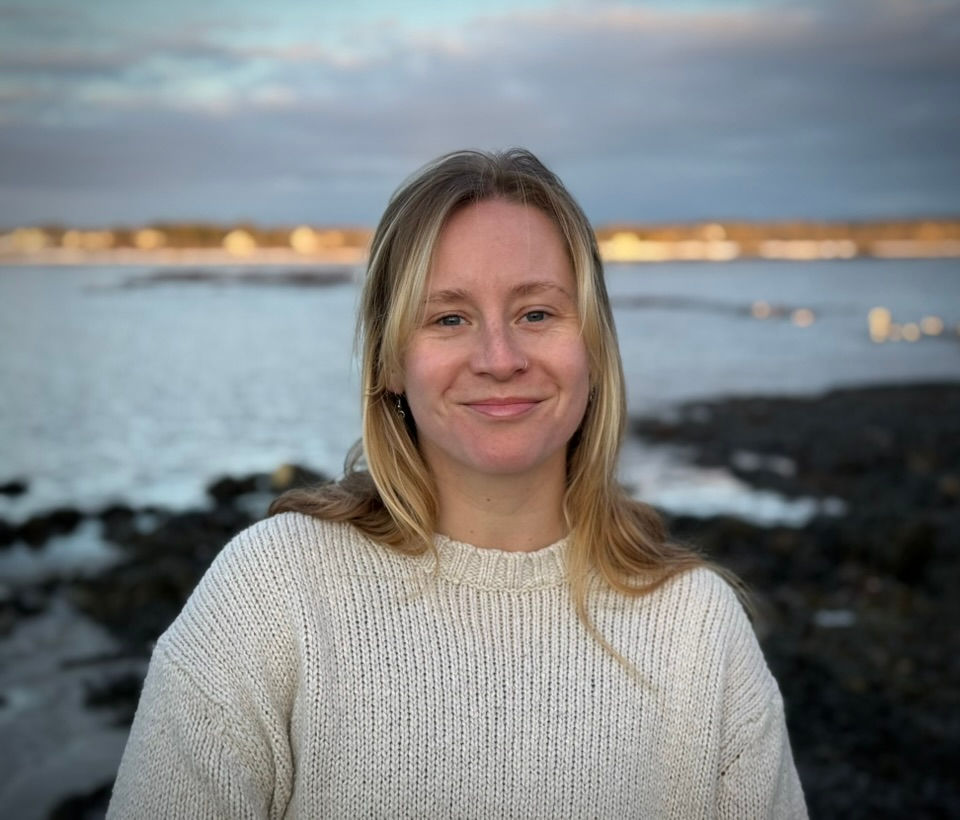Fishermen Wellness: We need more awareness of mental health stresses on Maine’s fishermen
- Monique Coombs

- Jan 6, 2022
- 4 min read
Below is an op-ed by Monique Coombs (MCFA) and Hannah Longley (NAMI Maine) originally printed in the Portland Press Herald on 12/19/2021.
Farmers and fishermen both rely on the weather to determine their schedules. One prays for rain, the other for clear skies and calm seas. Both wake up before the rooster crows and go to bed thinking about another full day of work ahead. They have similar concerns: regulations, development, finances, labor, and their families.
Other parallels that can be drawn include the generational nature of the work; intrinsic family and community culture; and legacies of land, boats, or buoys. Both industries are grappling with climate change; farmers are stewards of the land; fishermen are stewards of the sea.
Farming and fishing are two industries that are historically comprised of men, and in the past decade, the median age of both has increased (around 57). While there has been increasing attention on the mental health impacts and suicide risk factors for farmers there is little research focused on the specific mental health challenges of fishermen. Due to the similarities in work factors and demographics, research on the suicide risk for farmers may inform risks for fishermen.
In the farming industry, men represent 95.9% of suicide deaths, with a mean age of 57 at the time of death. Caucasian males represent 97.3% of these deaths. Risk factors include health problems, injury and disability, loss of relationships and grief, little time for family life, economic hardships, and loss of land. In examining these risk factors, similar challenges can be observed in fishing communities: long hours, unpredictable schedules based on the weather, loss of working waterfront properties and community homes, loss of fishing grounds, and regulations that impact economic viability.
“The factors that contribute to suicide in the farm community are complex and compounding,” says Julie Sorenson, Director of the Northeast Center for Occupational Safety and Health. “Based on two decades of interactions with farmers, I would say it’s a mixture of isolation, which is ever-increasing given the loss of farms, the loss of agriculture as a way of life and cultural identity and the unrelenting fears of losing the farm due to economic and regulatory pressures. Many farmers are terrified of being the one who lost the farm after generations of their forebears labored to build the business and acquire the land.”
Offshore wind development, major gear changes, closures resulting in loss of fishing grounds, waterfront development, and intertidal conflict all have the potential to put fishermen out of business. The health and well-being of Maine fishermen is typically an after-thought in fisheries management decisions. Unfortunately, these decisions and economic factors impact current and future opportunities, altering the traditional landscape of Maine’s coast and threatening the viability of the fishing industry.
Without the ability to fish, fishermen feel irrelevant and disconnected, much like farmers who cannot continue farming.
Of most concern is passive suicide ideation, when someone; has a decreased willingness to live and therefore a higher likelihood of engaging in activities making life-threatening decisions (i.e., fishing in poor weather). Depression, loneliness, rejection, and hopelessness are factors that lead to suicide ideation.
Fishermen live with a passive acceptance and thoughts of their death daily: fishing is one of the most dangerous jobs in the United States. According to the CDC, during 2000–2017, the fatality rate for fishermen was 114 deaths per 100,000 full-time equivalent (FTE) workers vs. 4 deaths per 100,000 FTE workers among all U.S. workers.
Changes in the industry, whether it’s ropeless gear or industrial development in the Gulf of Maine, cannot continue to happen in a silo while disregarding the threat to the well-being of fishermen.
It is imperative that policymakers include fishermen in decisions that impact them, invest in programs that support a fisherman’s ability to continue to work on the ocean, and create opportunities for fishermen to seek mental health support and wellness resources that are specific to their industry. While stress in agriculture is an all too familiar topic, it is time for the general populace to be aware of the stress and threats to our commercial fishermen.
Read more about fishermen & mental health.
MCFA blogs about Fishermen Wellness with our partners at NAMI Maine HERE.
Safety Net: What's missing in mental health for fishermen (National Fisherman, 8/18/19)
Mental Health and the Modern Fisherman (Hakai Magazine, 3/16/2021)
If you are in need of support.
If you feel that things have piled up and you would like to talk to someone outside your family or circle of friends, please reach out to NAMI Maine for support. They would be happy to assist you in any way that they can. The NAMI Maine Helpline can be reached at 622-5767 x 1.
National Suicide Prevention Hotline
800-273-8255
If you need to apply for Medicaid, you can reach out to Oasis at 207-721-9277 or visit oasisfreeclinics.org. Oasis also offers free healthcare and mental services in the interim period while the application process is happening.
Maine Seacoast Mission can help fishing families in Downeast Maine find support and resources on a number of issues including mental health, substance use disorder, and food insecurity.
MCFA has a list of councelors available to speak with fishermen as well as funding support to help with the costs of initial visits. We want to help make it as easy as possible for fishermen to access support. For more information please email monique@mainecoastfishermen.org.
Together, we persevere.





Comments